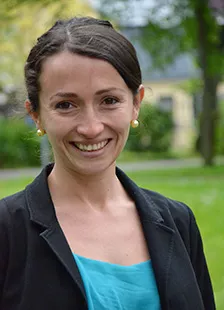The jury consisting of the board of FALF, forum for working life research, motivates the choice of thesis as follows:
Ana Maria Vargas' thesis provides a very good ethnographic description of working conditions among informal workers and how these can be influenced by formalization strategies. In the thesis, Vargas has conducted field studies among street vendors and rickshaws (bicycle taxis) in Bogotá, Colombia.
Her empirical material is particularly rich. Both theoretical foundation and theoretical discussion are clearly prepared and reflective. Through her thesis, Vargas has contributed to the debate on how formalization reforms, based on ideas for modernization in developing countries, improve working conditions or exclude the most vulnerable groups in society.
The thesis thus combines a practical social relevance with a high scientific quality. Ana Maria Vargas is also a great narrator and the thesis is very well written. (Translated from Swedish by editor of soclaw.lu.se)
Abstract
Millions of people worldwide work outside the law as street vendors in order to earn a living. However, they often work in fear of police evictions and confiscations since their work is in many places considered illegal. In this context, formalization (steps towards legalization) is often portrayed as a model for empowerment that allows poor street vendors to improve their well-being. Formalization, as a model to manage street vending, is widely promoted by various international development organizations. While important, studies of formalization show that street vendors often resist state control, and the majority continues to work outside the law.
The main research question guiding this study is: how does formalization of street vendors in Bogotá enable and/or hinder their well-being? To examine this question, this study uses an ethnographic approach and the concept of social control within the tradition of sociology of law. The data for this study was collected through ethnographic fieldwork conducted between 2012 and 2014 in the city of Bogotá, Colombia. Three groups were studied: vendors within the transitional zones (a formalization program), two rickshaw driver associations, and itinerant ice cream vendors.
The main findings illustrate that although street vendors work outside the law, they do not operate in a state of chaos or anarchy. Quite the opposite, law and other forms of social control are present in their work. These practices of control often affect their well-being. Despite harsh working conditions, well-being according to them means more than economic survival, and often, street vendors strive to improve their lives and gain independence in their work.
Another finding is that formalization is often directed toward the more established vendors and does not account for the fact that new individuals arrive on the streets every day trying to make a living. Often, the most vulnerable groups (immigrants, women, the newly unemployed) lack the time and knowledge to formalize or simply are not targeted in formalization programs. Without a deep understanding of how social control already operates, the state runs the risk of developing formalization initiatives that undermine the well-being of the most vulnerable groups. Thus, this study of everyday forms of social control provides empirically based insights into the ways law influences the lives of those working outside the law.
